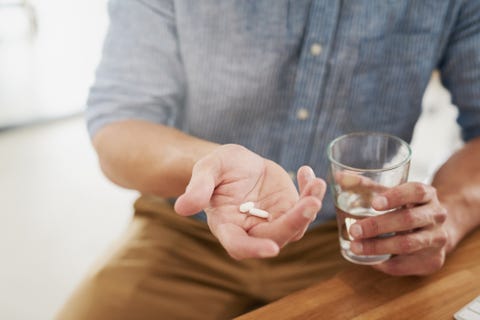What would have been just a sniffle or scratchy throat last year at this time has now set you off down the path to wondering, is this my allergies acting up, or could this be a symptom of COVID-19?
“It’s very confusing for patients, because some symptoms overlap,” says Lakiea Wright, M.D., a board-certified physician in Allergy and Immunology and a practicing physician at Brigham and Women’s Hospital in Boston. Allergies can be accompanied by a runny or stuffy nose and a scratchy throat, and the cough triggered by postnasal drip could be hard to tease out from the dry cough that can be a symptom of COVID.
But there are ways to help yourself determine if what you’re experiencing is likely to be your usual seasonal allergies.
Telling seasonal allergy and COVID-19 symptoms apart
Check if you have a fever
“Allergies all by themselves should not be accompanied by a fever,” says Matt Dougherty, M.D., a physician with Esse Health in St. Louis. And fever is one of the symptoms of COVID-19—fever being a change in body temperature outside your normal window (your body temperature naturally fluctuates a bit). Some people are monitoring their temperatures twice a day to spot abnormal fluctuations. A loss of taste and smell is also believed to be a symptom of COVID-19, and that’s not a characteristic of having allergies, says Dr. Wright.
Notice if you’re itching
“Allergies often cause itchy, watery and red eyes. COVID19 is not associated with these types of ‘allergic conjunctivitis’ symptoms,” explains Caroline Sokol, M.D., MPH, the principal investigator at Massachusetts General Hospital’s Center for Immunology and Inflammatory Diseases.
Take your allergy history into account
“A lot of allergy sufferers have a previous history of seasonal allergies,” says Dr. Dougherty. So if the trees or other plants that cause you trouble have already started to bloom, your trouble may be seasonal allergies.
See if your allergy medications change anything
“If you have a runny or stuffy nose, see if taking a long-acting antihistamine [Claritin, Allegra, Zyrtec] makes you feel better,” says Dr. Wright. “Typically with allergies, you’ll feel some improvement in symptoms within an hour of taking those medications.” Note that nasal steroids, another smart strategy for seasonal allergies, take longer—a few days to a week—to noticeably affect symptoms.
How to help yourself stop worrying about COVID-19 every time you sneeze
There are ways to keep your allergy symptoms under control so you don’t have to get in the spiral of concern every day—and so your allergies don’t keep tackling you.
Ideally, take your meds early. “It’s best to start your allergy medications before your symptoms start—they work better at preventing symptoms than they do at reversing them,” says Dr. Sokol.
Here’s how that works: When you encounter an allergen, your mast cells start to pump out histamine, explains Dr. Wright. “And when that’s fired up, you get swelling and itching. Taking an antihistamine counteracts that cascade of symptoms by blocking that histamine chemical.” Taking medicines consistently a little bit ahead of prime pollen season helps keep histamine level low. If you wait, “you’re always trying to play catch-up,” she says. It’s like opening a drain before the sink floods. If the sink has already flooded, you have a lot more work to do. But if you keep the drain open, things work more smoothly.
“You can’t completely avoid pollen,” she says. “But you can have a lower baseline of histamine by consistently taking medications.”
If you’ve already missed the “before pollen starts” window: “It’s never too late to start taking allergy medications to feel better,” says Dr. Sokol. “Nasal steroid sprays and antihistamine pills are the mainstays of treatment and both are available over the counter.”

PeopleImagesGetty Images
Some COVID-prevention strategies may defeat your allergies, too
The new habit of keeping your nose and mouth covered with a homemade mask may filter out some of the pollen particles you react to.
In general, the rule with seasonal allergies “reduced exposure means you’re likely to have less symptoms,” says Dr. Wright, which is why allergists recommend that you keep car windows rolled up and avoid doing outdoor activities in peak pollen times, like sunup and sundown.
And wearing eyeglasses instead of contacts, another suggested COVID-19-protection strategy, may protect your eyes from a bit of the pollen out there. “Pollen will come in from the sides, sure,” says Dr. Wright. “But it can help you avoid having a large amount of exposure to pollen all at once.”
Change your clothes to diminish allergies
Pollen is a clingy substance. It loves to hang onto clothing fibers. So when you come in from outdoors, change your clothes and put what you just had on into the washer.
And to keep down the amount of pollen your clothes collect, of course, plan outdoor activities around lower pollen levels as reported on your local weather forecast.
Source: Read Full Article
